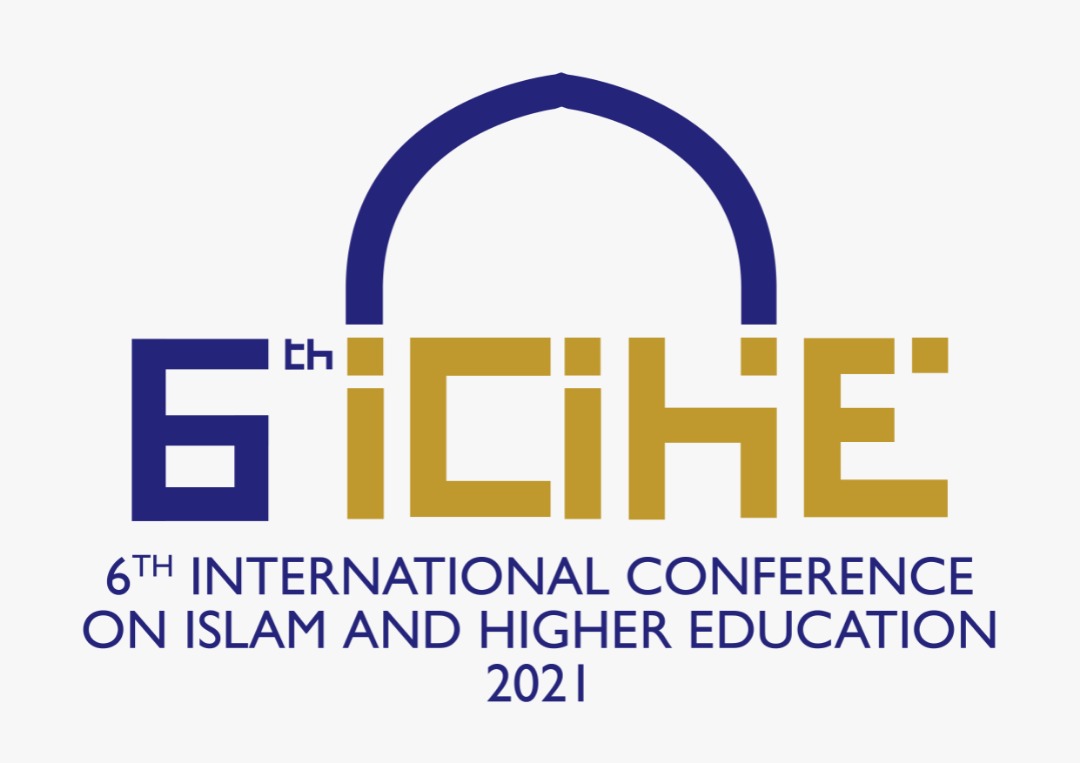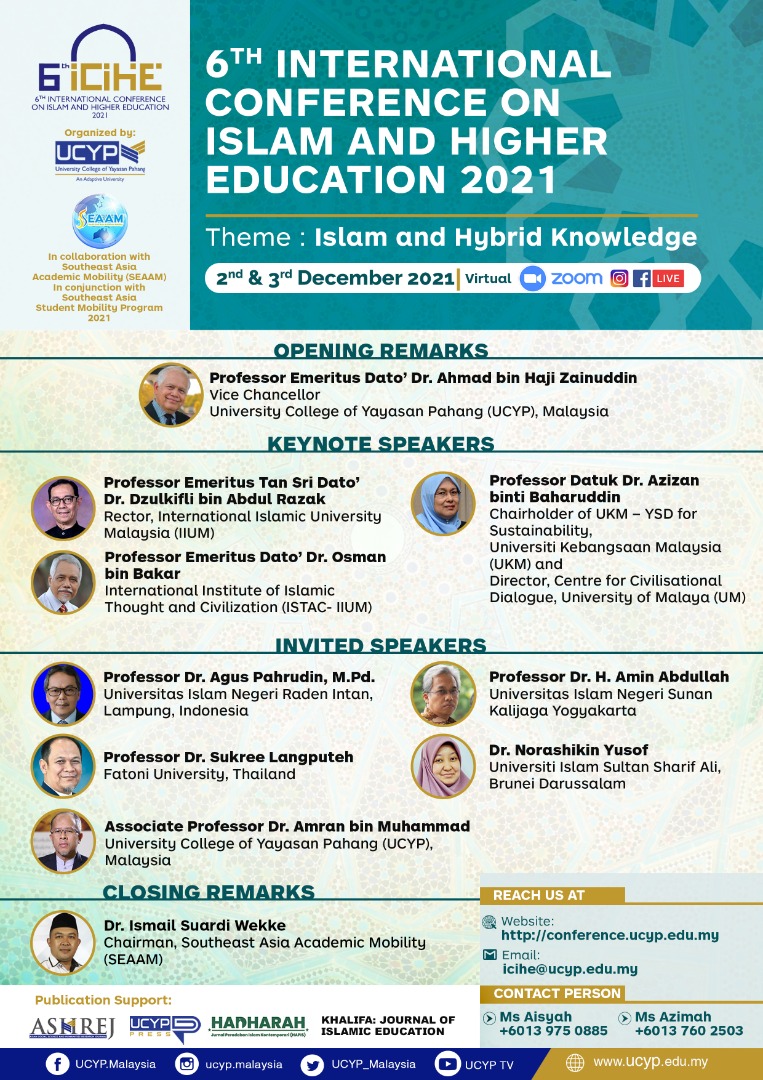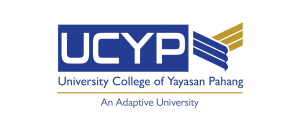

“Islam & Hybrid Knowledge”
Introduction
§ ICIHE is an academic
discussion event in which participants will share their research findings on better
perception of Islamic Education at the conference and gain new knowledge on
Islam & Hybrid Knowledge.
Mission
§ Enhancing and ensuring Islamic Higher Education with some diverse & comprehensive educational experiences.
Objectives
§To provide leading academia, researchers & research scholars with an academic forum for sharing current research and teaching on the construction & applications of Hybrid Knowledge that in line with Islamic approaches.
§ To share awareness & best practice and research to embark on the Hybrid Knowledge & Islam Initiative.
- With the emergence of Industry 4.0 (IR5) propelled by the internet of things (IoT), artificial intelligence (AI), robotics and blockchain technology; the conceptual enablers for new knowledge creation will be based on concepts such as hybridity, modularity, synthesis, synergy, appropriation, assimilation, adaptation and adoption. The challenge is how to benefit from globally available knowledge which includes practice and technology using these conceptual drivers. The construction and applications of Hybrid Knowledge is among the key success factors in Industry 4.0 era.
- Hybridity
can take place between cross-breeding art and other disciplines like science,
literature, pop culture and art with technology. Dicitionary.com defines
Hybridity as “the appropriation of a new style by combining elements of
different genres in order to appeal to a wider audience”. Hybrid Knowledge
involves not only passive appropriation but also active reformulation the
existing theory, practice and technology to suit the newly adopted environment.
At the micro level, Hybrid Knowledge is generated through a careful process of
organizational selection, goal orientation and technological mediation of the
theory, practice and technology involved. At the macro level, Hybrid Knowledge
is facilitated through a deliberate process of strategic consideration, social
and cultural reception and even religious motivation.
- Looking
back to the Islamic civilization, it is uncomplicated to imagine the
unparalleled achievement in knowledge creation and dissemination that once
Islamic civilization had contributed from the 8th to the 18th century could be
attributed to the same conceptual enablers being deployed. By accommodating all
the knowledge from the Greek, Byzantine, Egypt, Persian, India and China with a
careful and deliberate process, the Islamic civilization has shown a practical
model for Hybrid Knowledge creation to the Modern Western civilization in the
17th century.
- The Muslim world should now re-learn what and how Hybrid Knowledge being produced by their glorious predecessors. With courage and passion, the past Islamic civilization had been able to appropriate the frontier knowledge of their time from others to build the great civilization. Only with the same and right attitude as before that today’s Muslims can revitalize their knowledge civilization again in the 21st century. It is a great honor for the University College of Yayasan Pahang to embark on the Hybrid Knowledge and Islam Initiative in conjunction with the 6th International Conference on Islam and Higher Education (6th ICIHE 2021).
- Philosophy
and Methodology of Hybrid Knowledge.
- Islamic
Values & Practices in the Hybrid Knowledge.
- Hybrid Knowledge in Islamic-Based industries i.e Halal, Hajj, Takaful etc.
- Hybrid Knowledge & Education for Sustainability
- Hybrid Knowledge & Civilization Dialogue for Peaceful Coexistence.
IMPORTANT DATE
E-Certificate
E-Seminar Kits
Free Workshop: Journal Writing & Publication
*By IT Department,University College of Yayasan Pahang
**By Research Management Centre, University College of Yayasan Pahang
Normal
|
Presenter |
|||
|
Local |
International |
Local |
International |
|
Free |
Free |
RM 300 |
USD 100 |
Early Bird (before 31st August 2021)
|
Participant |
Presenter |
||
|
Local |
International |
Local |
International |
|
Free |
Free |
RM 250 |
USD 75 |
E-certificate
for participate will be charged RM 50(upon request)
· Student’s
fee – discount 10%
· Per group( 3
persons) – discount 10%
Beneficiary : KYP Education Sdn. Bhd
Address : Level 2, Kompleks Yayasan Pahang, Tanjung Lumpur,
26060 Kuantan, Pahang Darul Makmur,
Malaysia. Tel. +609 534 3999
Account No. : 8007874529
Bank Name : CIMB Bank - Malaysia
Swiff Code : CIBBMYKL
Organized By :

In Collaboration with :


